Are you considering adding a Beauceron to your family? This breed, also known as the French Shepherd, is a large and intelligent dog that is both powerful and agile. Originally bred for herding and guarding livestock, the Beauceron is a loyal and protective companion that can also excel in various activities such as obedience, agility, and tracking. However, as with any breed, it’s important to do your research and understand the characteristics and needs of the Beauceron before making a commitment to owning one.
Breed Category: Herding
Country of Origin: France
Average Size:65-70 cm (at the shoulder)
Average Weight:30-45 kg
Average Life Span: 10-12 years
Grooming Requirements: Moderate
Exercise Requirements:High
History and Origin
The Beauceron is a large and powerful breed of dog that originated in France. This breed is also known as the Berger de Beauce or the Bas Rouge, which means “red stockings” in French. The Beauceron is a versatile breed that has been used for herding, guarding, and as a military and police dog. The history and origin of the Beauceron can be traced back to the 16th century.
The Beauceron was developed in the Beauce region of France, which is located south of Paris. This region is known for its fertile farmland and was a popular area for sheep farming. The Beauceron was bred to be a herding dog that could work with large flocks of sheep. The breed was also used for guarding the sheep from predators such as wolves and bears.
The Beauceron is believed to be a descendant of the ancient Molossus breed, which was used by the Romans as a war dog. The Molossus was a large and powerful breed that was used for fighting and guarding. The Beauceron was developed by crossing the Molossus with local herding dogs in the Beauce region. This resulted in a breed that was strong, agile, and intelligent.
The Beauceron was first recognized as a breed in 1863 by the French Kennel Club. The breed was originally called the Berger de Beauce, which means “shepherd of Beauce”. The breed was later renamed the Beauceron in the 20th century. The Beauceron was also used as a military and police dog during World War I and World War II. The breed was used for a variety of tasks such as carrying messages, guarding, and tracking.
The Beauceron is a large and muscular breed that stands between 24 and 27 inches tall at the shoulder. The breed has a short and dense coat that can be black and tan or harlequin in color. The Beauceron is a highly intelligent breed that is loyal and protective of its family. The breed is also known for its courage and bravery. The Beauceron requires a lot of exercise and training to keep it mentally and physically stimulated.
In conclusion, the Beauceron is a breed that has a rich history and origin. The breed was developed in the Beauce region of France as a herding and
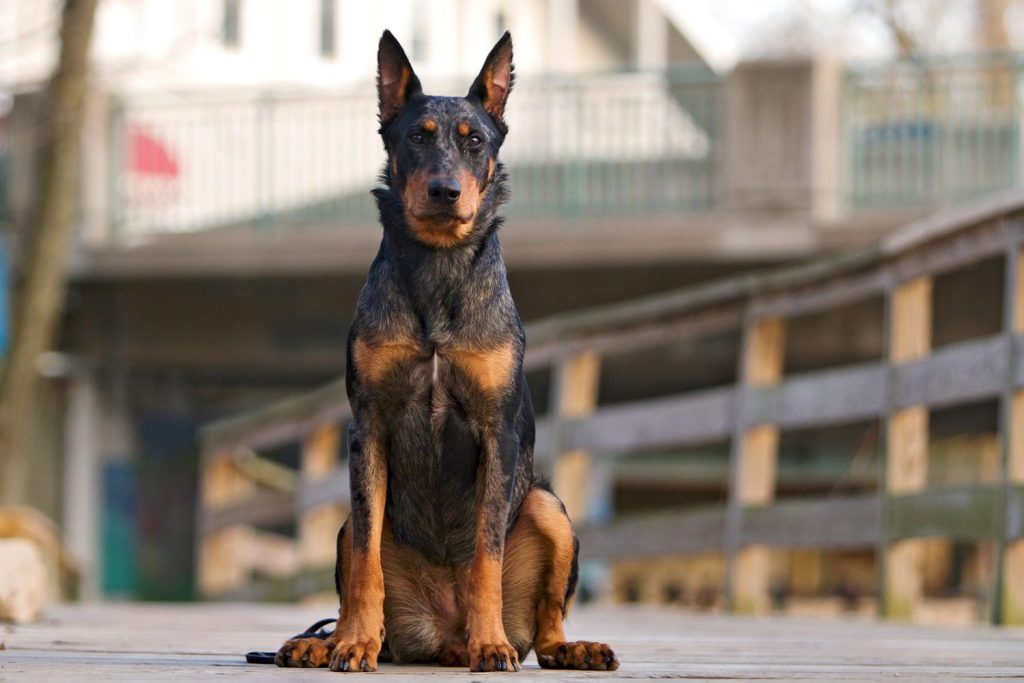
Size and Breed Category
The Beauceron is a large breed of dog that originated in France. They are classified as a working breed and are known for their intelligence, loyalty, and protective nature. Beaucerons are muscular and athletic dogs, with a height range of 61-70 cm for males and 61-68 cm for females. They typically weigh between 30-45 kg, with males being slightly larger than females. Their coat is short and dense, with a black and tan or black and rust coloration. Beaucerons have a strong, confident gait and are capable of running at high speeds for extended periods of time.
Beaucerons are a versatile breed that excel in a variety of activities, including herding, obedience, and protection work. They are highly trainable and respond well to positive reinforcement methods. Due to their protective nature, Beaucerons require early socialization and training to ensure they are well-behaved around strangers and other animals. They are loyal and devoted to their families, making them excellent guard dogs and companions. Beaucerons are a relatively rare breed, but their popularity is growing due to their intelligence, athleticism, and versatility.
Fur Length and Colour
The Beauceron is a breed of dog that is known for its thick and dense fur. The fur of the Beauceron is typically medium in length, with a coarse texture that provides excellent protection against the elements. The fur is also known for being water-resistant, which makes it ideal for dogs that spend a lot of time outdoors. The fur of the Beauceron can come in a variety of colours, including black, black and tan, and harlequin. The black and tan variety is the most common, with a black coat and tan markings on the legs, chest, and face. The harlequin variety has a white base coat with black patches, while the black variety is entirely black. Overall, the fur of the Beauceron is an essential part of its appearance and provides both protection and style.
The colour of the Beauceron’s fur is an important aspect of the breed’s appearance. The black and tan variety is the most common, with a black coat and tan markings on the legs, chest, and face. The tan markings are typically a rich, reddish-brown colour that provides a striking contrast to the black fur. The harlequin variety has a white base coat with black patches, which can vary in size and shape. The black variety is entirely black, with no other markings. The colour of the Beauceron’s fur is an important consideration for breeders and owners, as it can affect the dog’s appearance and overall appeal. However, regardless of the colour, the Beauceron’s fur is always thick, dense, and protective, making it an ideal choice for working dogs and outdoor enthusiasts.
Termperament and Trainability
Beaucerons are known for their high energy and intelligence, making them a great choice for active families or individuals. They are highly trainable and excel in obedience and agility competitions. However, their strong-willed nature can make them a challenge for inexperienced owners. It is important to establish a firm and consistent training routine from a young age to ensure they understand their place in the family hierarchy. Beaucerons are also known for their loyalty and protective instincts, making them excellent guard dogs.
In terms of temperament, Beaucerons are typically reserved with strangers but affectionate with their family. They are not typically aggressive, but their protective nature can lead to them being wary of unfamiliar people or animals. Early socialization is important to ensure they are comfortable in a variety of situations. Beaucerons are also known for their high prey drive, so it is important to supervise them around small animals. Overall, Beaucerons are a loyal and intelligent breed that thrive with consistent training and plenty of exercise.
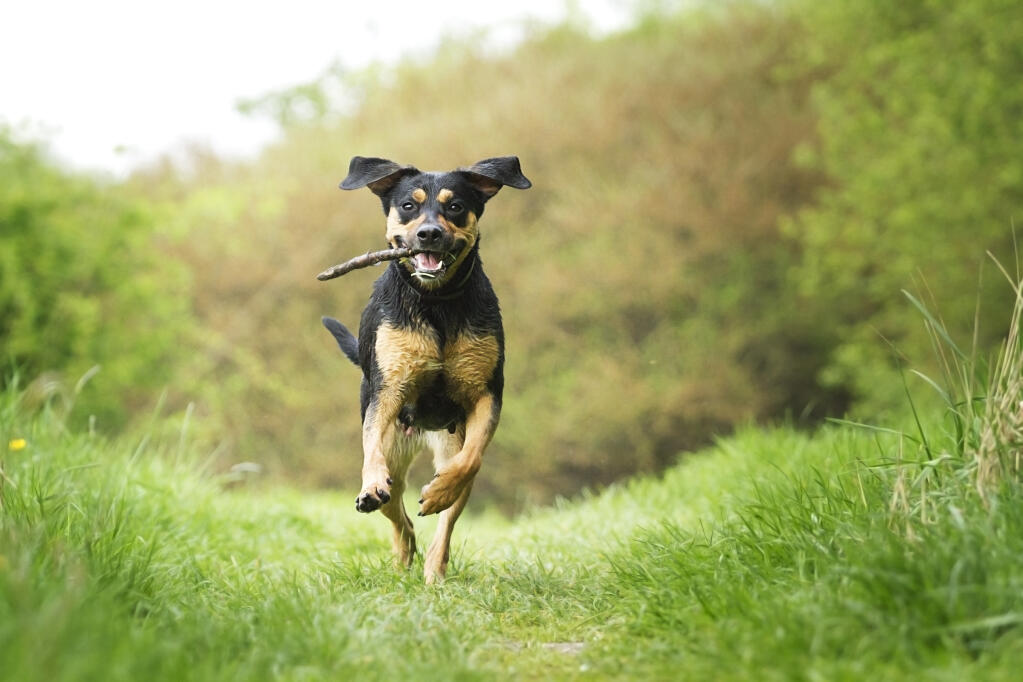
Known Health Conditions
Beaucerons are a breed of dog that are known to be prone to certain health conditions. One of the most common health issues that Beaucerons face is hip dysplasia. This is a condition where the hip joint does not develop properly, leading to pain and discomfort for the dog. Beaucerons are also at risk of developing bloat, which is a condition where the stomach fills with gas and twists, cutting off blood flow to the organs. This is a life-threatening condition that requires immediate veterinary attention. Other health issues that Beaucerons may face include eye problems, such as cataracts and progressive retinal atrophy, as well as heart conditions such as dilated cardiomyopathy. It is important for Beauceron owners to be aware of these potential health issues and to work closely with their veterinarian to ensure that their dog receives the appropriate care and treatment.
Another health condition that Beaucerons may face is hypothyroidism. This is a condition where the thyroid gland does not produce enough hormones, leading to a range of symptoms including weight gain, lethargy, and skin problems. Beaucerons are also at risk of developing allergies, which can cause itching, redness, and inflammation of the skin. In addition, Beaucerons may be prone to certain types of cancer, such as osteosarcoma and hemangiosarcoma. Regular veterinary check-ups and preventative care can help to identify and manage these health issues, ensuring that Beaucerons can live long and healthy lives. It is important for Beauceron owners to be proactive in their dog’s healthcare, and to work closely with their veterinarian to provide the best possible care for their furry friend.
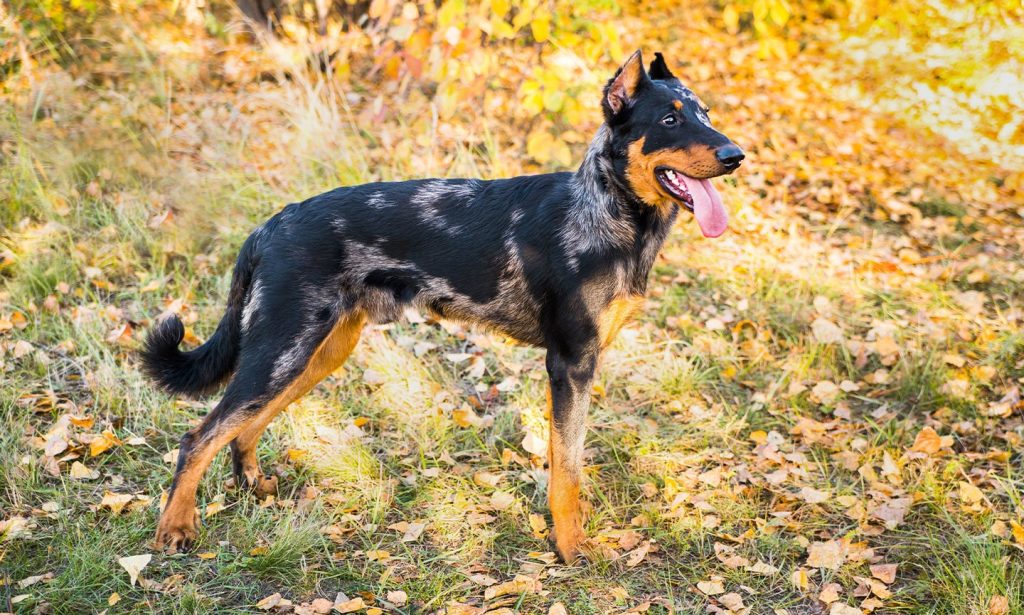
Openness to Strangers
Beaucerons are known for their welcoming nature towards strangers. They are a breed that is naturally curious and friendly, making them great companions for those who enjoy meeting new people. Their open-mindedness towards strangers is a trait that is highly valued by their owners, as it makes them excellent watchdogs and family pets. Beaucerons are always eager to greet new people and make them feel at home, which is why they are often used as therapy dogs in hospitals and nursing homes. Their friendly nature also makes them great playmates for children, as they are patient and gentle with young ones.
Beaucerons are not only friendly towards humans, but they also get along well with other animals. They are known to be sociable and enjoy the company of other dogs, cats, and even livestock. This makes them great pets for families who have other pets in the household. Beaucerons are also highly adaptable and can adjust to different living environments, whether it be in a city apartment or a rural farm. They are a breed that thrives on human interaction and attention, which is why they make such loyal and devoted companions. Overall, Beaucerons are a breed that is known for their welcoming and friendly nature towards both humans and animals alike.
Playfulness Level
The Beauceron is a highly energetic and playful breed of dog. They are known for their love of play and their ability to keep their owners entertained for hours on end. Whether it’s playing fetch, chasing after a ball, or simply running around in the park, the Beauceron is always up for a good time. They are also highly intelligent and love to learn new tricks and commands, making them a great choice for owners who enjoy training their dogs. Overall, the Beauceron’s playful nature makes them a great companion for families and individuals who are looking for a fun-loving and active pet.
Despite their playful nature, the Beauceron is also a highly loyal and protective breed. They are known for their strong bond with their owners and their willingness to defend them against any perceived threats. This makes them an excellent choice for families who are looking for a dog that can provide both companionship and security. Additionally, the Beauceron’s intelligence and trainability make them a great choice for working roles such as search and rescue or police work. Overall, the Beauceron’s playful and protective nature make them a versatile and highly desirable breed for a wide range of owners.
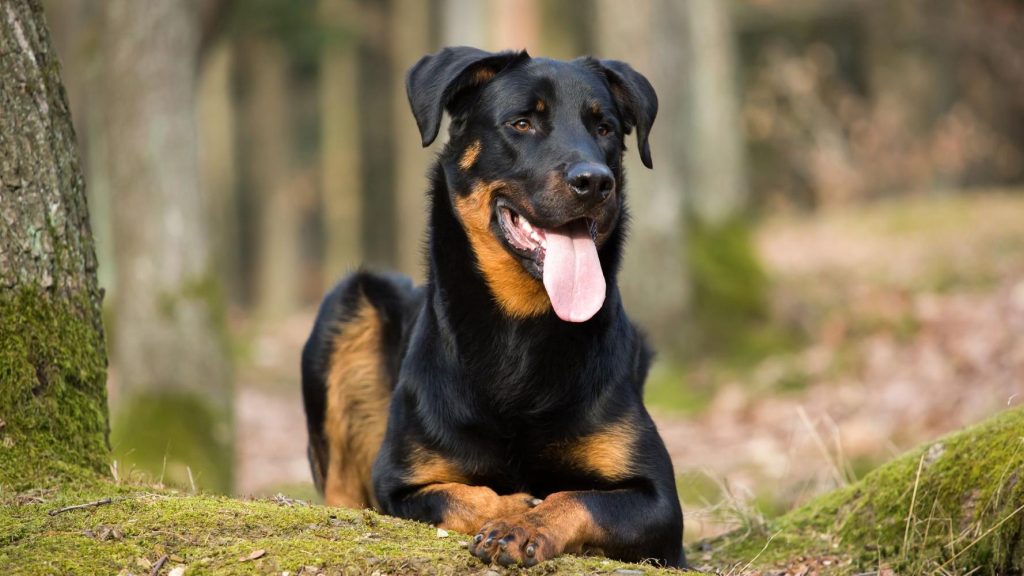
Suitability as a Pet for Children
Beaucerons are known for their loyalty and protective nature, making them a great choice for families with children. They are highly intelligent and trainable, which means they can be easily taught to behave around kids. Beaucerons are also energetic and love to play, which makes them great companions for active children who enjoy outdoor activities. However, they do require regular exercise and mental stimulation to prevent boredom and destructive behavior. Overall, Beaucerons can make excellent pets for families with children who are willing to put in the time and effort to properly train and care for them.
Exercise Needs
Beaucerons are highly active dogs that require plenty of exercise to maintain their physical and mental health. As a large breed, they need a significant amount of space to run and play, making them better suited to homes with large yards or access to open spaces. A daily walk of at least an hour is essential to keep them physically fit, but they also benefit from additional activities such as hiking, swimming, and agility training. Beaucerons are intelligent dogs that thrive on mental stimulation, so incorporating training and games into their exercise routine is important to keep them engaged and prevent boredom.
In addition to physical exercise, Beaucerons also require plenty of socialization and mental stimulation to prevent behavioral issues. They are loyal and protective dogs that can become territorial if not properly socialized, so early exposure to different people, animals, and environments is crucial. Mental stimulation can be provided through training, puzzle toys, and interactive games that challenge their problem-solving skills. Beaucerons are highly trainable and excel in obedience and agility competitions, making them a great choice for active families who are willing to invest time and effort into their exercise and training needs.
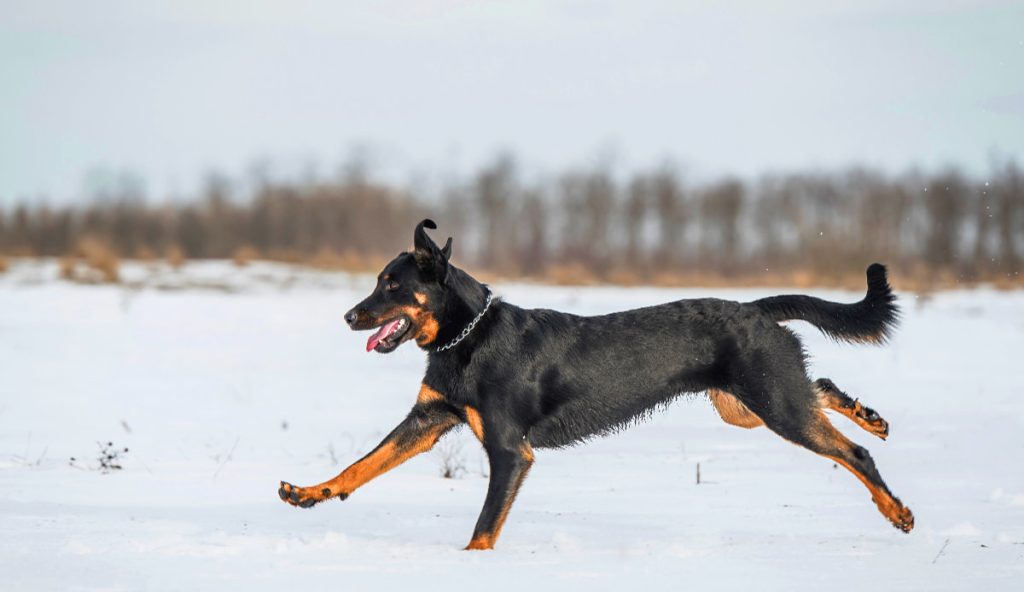
Suitability for a Multi-Pet Family
Beaucerons have a reputation for being protective of their family and territory. They are known to be wary of strangers and can be aggressive towards other dogs if not socialized properly. However, with proper training and socialization, Beaucerons can get along well with other pets in the household. It is important to introduce them to other pets slowly and under supervision to ensure a positive interaction.
Housing Requirements
Beaucerons require a spacious and secure living environment that allows them to move around freely. They are an active breed that needs plenty of exercise, so a large yard or access to open spaces is ideal. A minimum of one hour of exercise per day is recommended to keep them physically and mentally stimulated. They also require a comfortable and warm sleeping area, preferably indoors, as they are sensitive to extreme temperatures. Beaucerons are known for their loyalty and protective nature, so they need a safe and secure environment to feel at ease.
In addition to a spacious living environment, Beaucerons require regular grooming to maintain their thick and shiny coat. They shed moderately throughout the year, so weekly brushing is necessary to prevent matting and tangling. They also need regular nail trimming and ear cleaning to prevent infections. Beaucerons are intelligent and trainable, so they benefit from mental stimulation such as obedience training and interactive toys. They thrive in a structured and consistent routine, so a dedicated owner who can provide them with plenty of attention and care is essential.
Summary
Beaucerons make great pets for active families who enjoy spending time outdoors. They require plenty of exercise and mental stimulation to keep them happy and healthy. With their intelligence and loyalty, they make excellent companions and are known for their protective nature. However, they may not be suitable for first-time dog owners or those who are unable to provide them with the necessary exercise and training.
Beauceron Dog FAQS
Yes, Beaucerons are highly intelligent and trainable, but they require consistent and firm training.
Yes, Beaucerons are known to be great with children and make excellent family pets.
Beaucerons are generally healthy dogs, but they may be prone to hip dysplasia and bloat.
Yes, Beaucerons are natural protectors and make excellent guard dogs.
Yes, Beaucerons shed moderately and require regular grooming to maintain their coat.
Beaucerons are high-energy dogs and require at least 1-2 hours of exercise daily.
Beaucerons should have regular check-ups with a vet at least once a year, and more frequently as they age.
A Beauceron can grow up to 65-70 cm in height.
The average weight of a Beauceron is between 30-45 kg.
The average lifespan of a Beauceron is between 10-12 years.
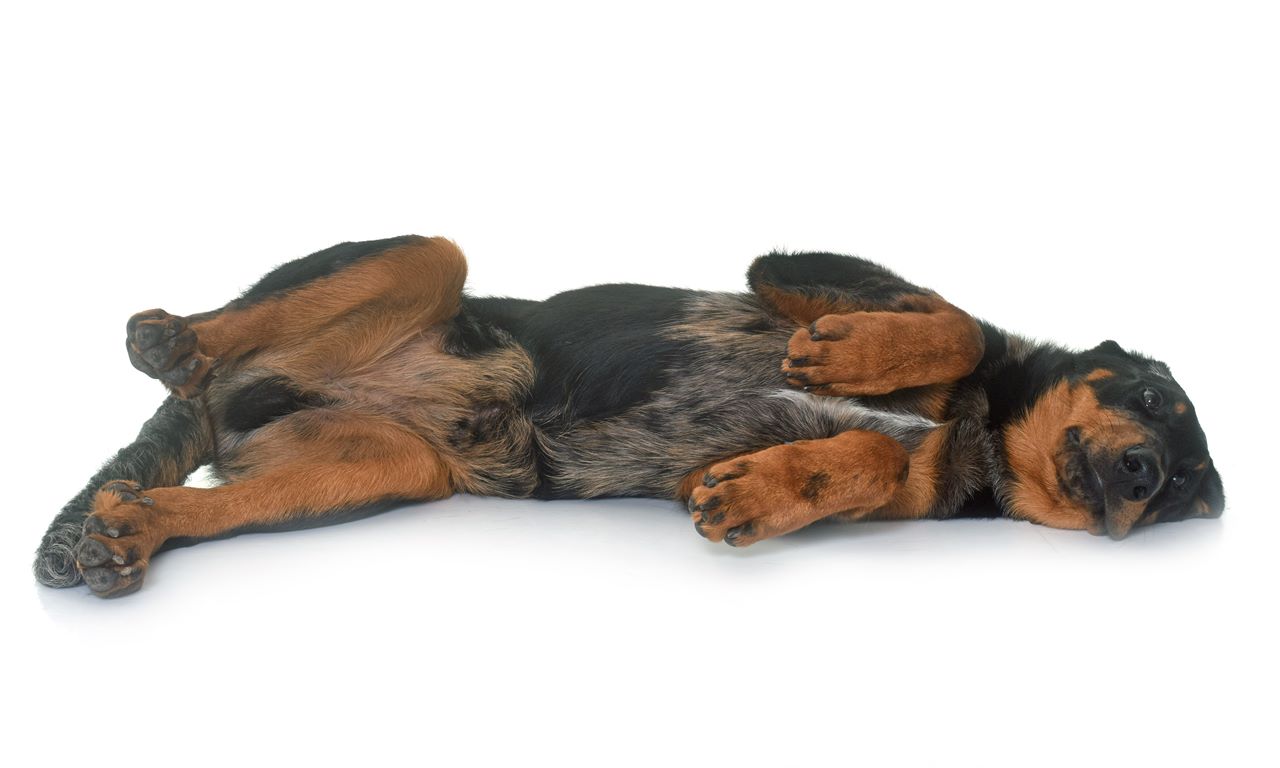
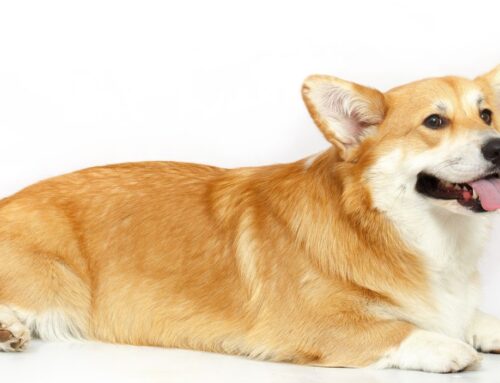
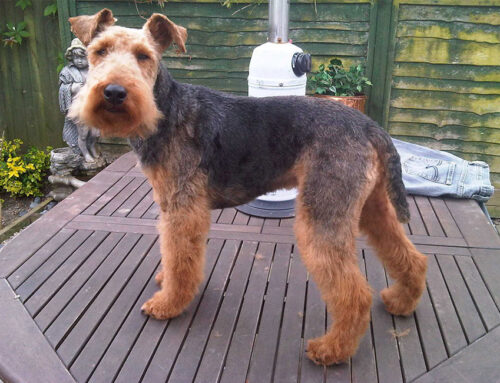
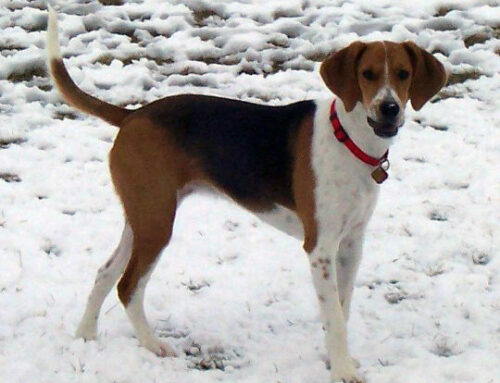
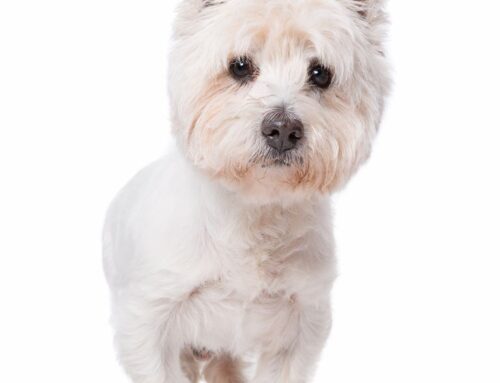
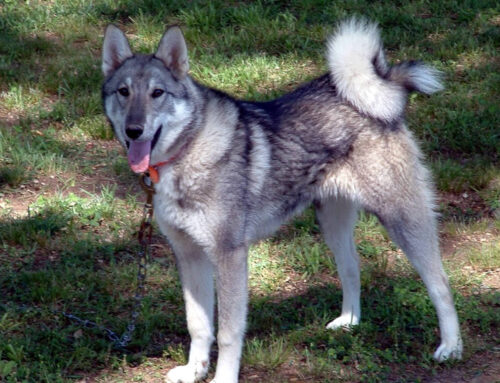
Leave A Comment